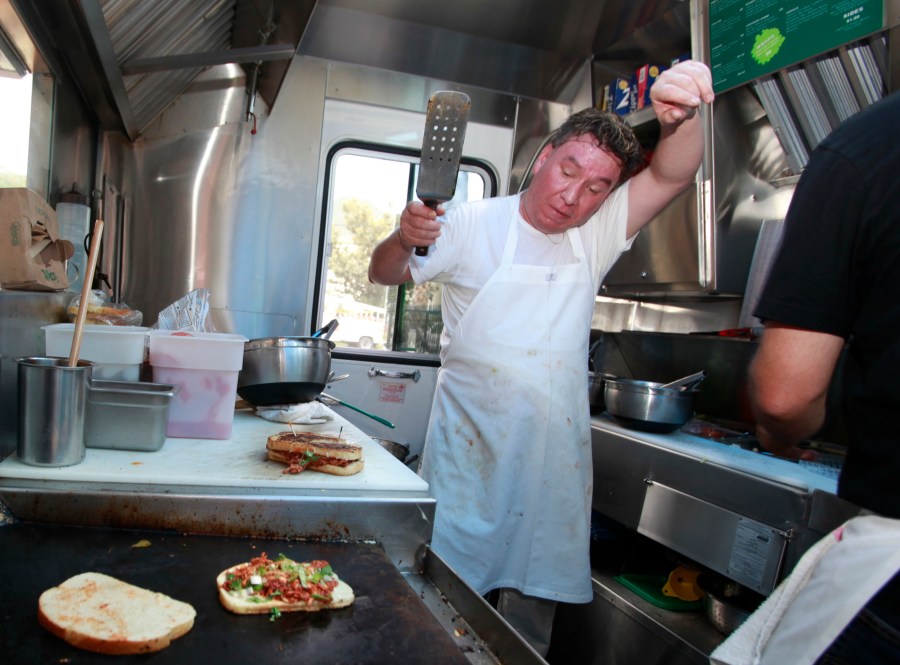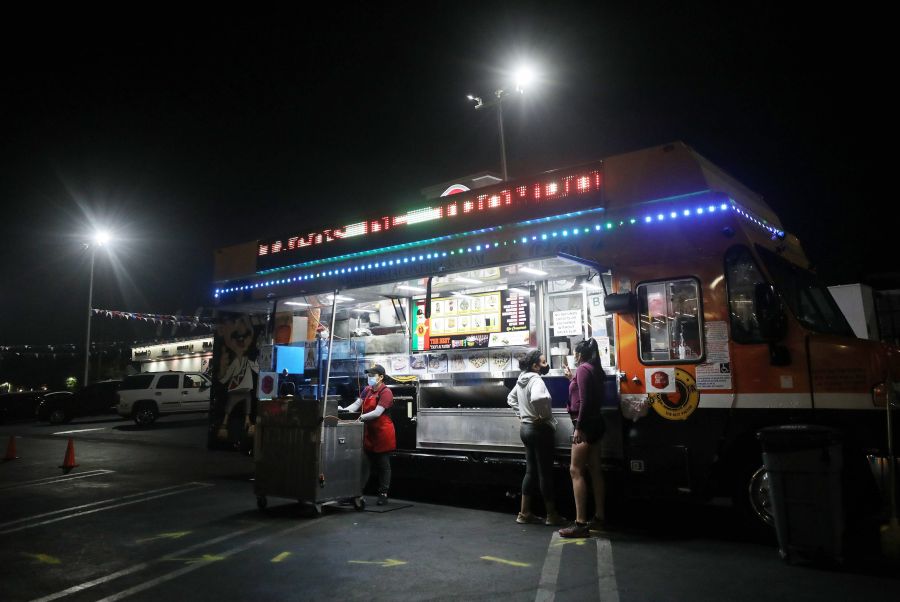Los Angeles’ robust food truck scene is part of the city’s culture, but those working inside the hot vehicles are facing severe risk of heat-related illnesses and there’s little that can be done to help — at least right now.
A new study from UCLA found that workers in L.A. food trucks are at an increased risk of suffering from heat-related health conditions, even when temperatures outdoors are mild.
UCLA researchers analyzed five food trucks in Los Angeles to determined the risks their workers face due to high temperatures inside. What they found was concerning for those who provide the beloved service to L.A. residents.
Even when outdoor temperatures were as low as 60 degrees, temperatures near a food truck grill could reach as high as 100 degrees, up to 35 degrees hotter than the rest of the truck, and stay that high for hours, long after the sun has set and outdoor temperatures plunged.
Among those interviewed as part of the study, workers reported suffering nosebleeds, headaches, dizziness, irritability, dehydration and nausea and vomiting while working on the trucks.
The trucks were located in the Westwood neighborhood of Los Angeles, and researchers utilized sensors placed near the grill or oven, in the food prep areas and by the serving windows to determine when and where temperatures were the worst.
Temperatures were measured on an April evening in 2022, and the interviews took place around that same time.

The risk for those working in the trucks is pretty obvious and a solution seems pretty simple: make the environment inside the food trucks cooler. But UCLA researchers say it’s not that easy.
Food safety regulations are a still a “work in progress,” when it comes to food trucks, said Bharat Venkat, the director of the UCLA Heat Lab.
One of the existing regulations dictate that air conditioning units need to be installed so that they don’t harm the food, either from contamination or due to temperature changes. Because of these rules, air conditioners are often placed far away from the workers who need them most.
“Everybody’s like, ‘Oh, well, you have AC,’” said one food truck operator who spoke with the researchers. “It doesn’t work. [The designer] put the vent windows right next to the AC, so all the air goes straight up.”
Another issue plaguing the food truck operators is a requirement to keep the backdoor closed at all times. The regulation serves a noble purpose: to prevent insects from getting inside, but that keeps most of the heat indoors.
Some have tried to circumnavigate this problem by installing screen doors, but others voiced fear that it might break local health codes. Venkat says that lack of clarity is a problem.
And other cooling devices, including swamp coolers, which would help with the brutally dry conditions inside the trucks, would require approval from the local health department.

Venkat said the sprawling L.A. food truck scene may inadvertently exploit low-income people of color who are more likely to be forced to put their health and lives at risk by working these jobs in extreme heat and may even be normalizing a false assumption that “certain groups can tolerate heat better than others.”
The UCLA researchers have recommended that Los Angeles County take a second look at health codes for food trucks with the aim of “ensuring better airflow on the vehicles without compromising food safety.”
Food trucks have been a “boon for consumers,” offering convenience and exposure to authentic ethnic cuisines, while providing income for owners and workers, many of whom are often immigrants, UCLA said.
With the industry exploding into a more than $1 billion industry in the last several years, and 1 in 8 of all food trucks in the U.S. operating in California, according to the UCLA study, researchers say a better balance needs to be struck between food safety and worker safety.




















